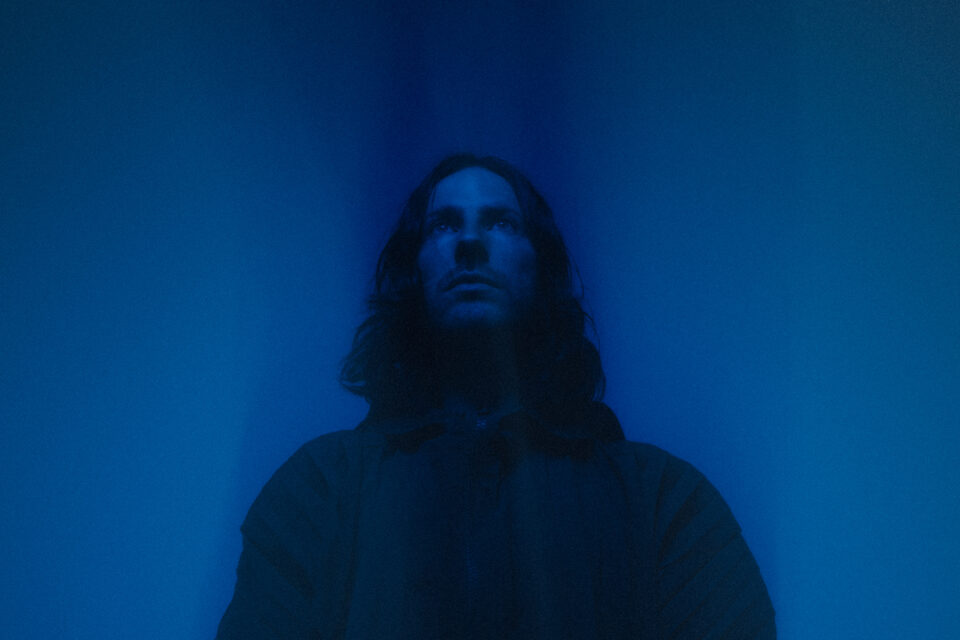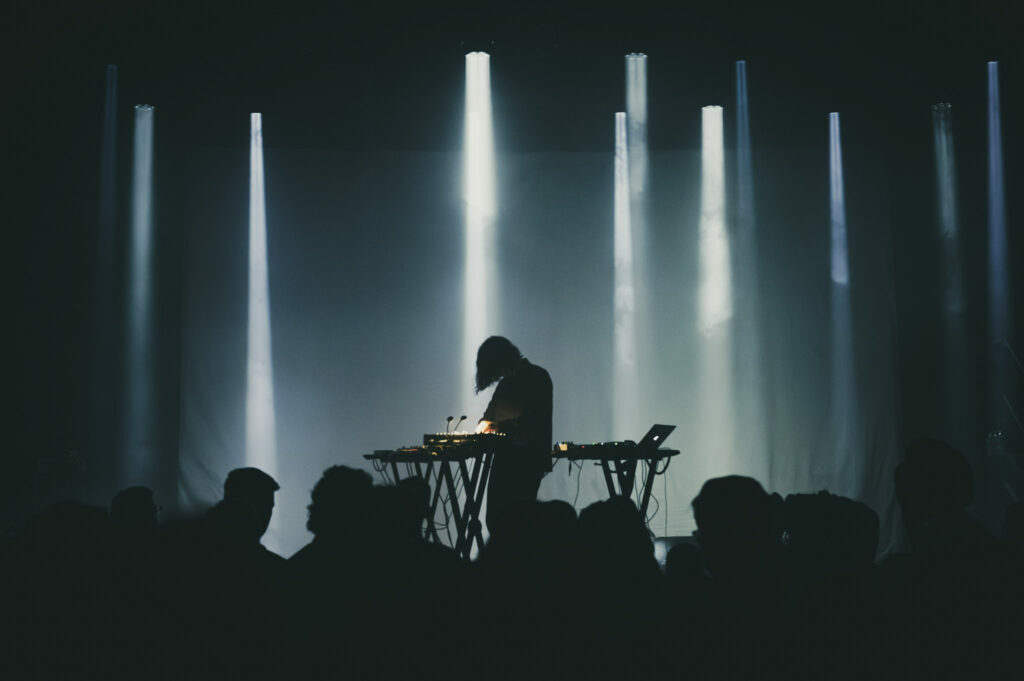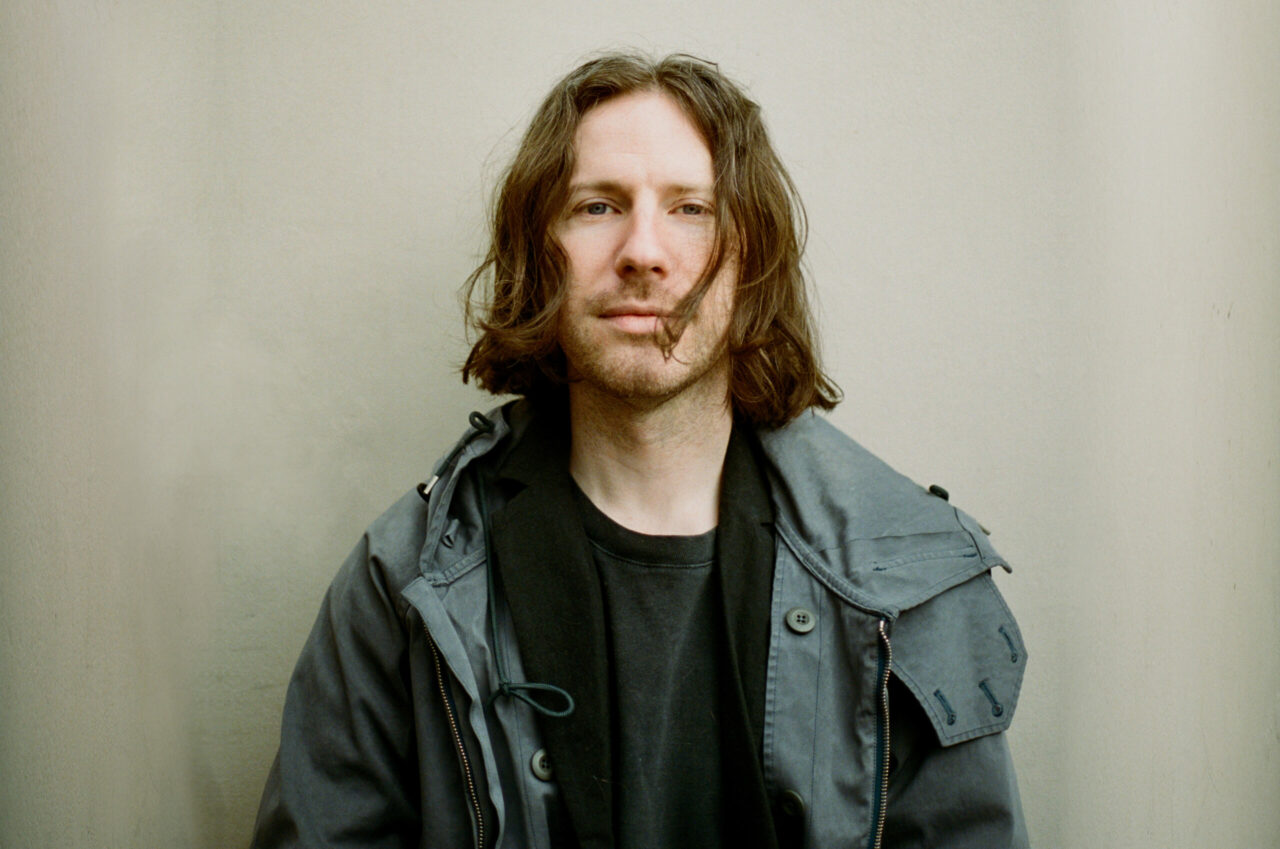Interview: Rival Consoles
Culture Shifts: Hello Ryan, let’s start by taking in your work from a very wide angle: how do you approach making music and where do you create music?
Rival Consoles: There are so many different ways really because I’m quite an obsessive maker in general. I end up making a huge amount of things, and lots of things that don’t work or don’t interest me. And then I kind of have two worlds, one world which is more conceptual and specific, and then one world which is more improvised and chaotic and things emerge from that. So for example, on the more specific side, one could mention pieces of music like “Recovery“, and maybe “Fragment“ or “Sudden Awareness of Now”, where I had the idea quite concrete in my mind in the process. Other compositions just emerged through the chaos, like “Memory Arc”. But it’s just lots of trial and error. I almost treat making music like research, so I don’t force myself to make something that I like. I allow things to emerge and then try to understand them in the process.

Rival Consoles. ©Dan Medhurst.
CS: It’s interesting to think about the sheer amount of material you produce. At Culture Shifts, we often reflect on the importance of curating in selecting what works best with respect to strategy. Does the art of curating also play a role in your profession?
RC: Yeah definitely, because it’s important to me that the works aren’t forced. For that to happen you have to step back and try to look at the materials and the work as if it’s somebody else and then decide what things you think are actually working. Obviously, it’s very difficult to do that, if not impossible. Another important part to me is listening to my work in different spaces. I never try to view the value of my own work in one space only, because I feel like it needs to become vulnerable in different spaces, such as playing gigs or when I’m traveling. I feel the urge to explore how vulnerable it is in different locations and contexts so that I understand what’s strong and weak about it.
CS: Could you elaborate on the idea of vulnerability? It seems increasingly important but also increasingly forgotten in our time.
RC: I think it’s a big part of my making. First of all is, I don’t really make music that is obvious club dance music. It’s more like between worlds. And that makes it vulnerable already, I think, because I may have a certain intention when playing in a club that people don’t expect. So I’ve spent like most of my career feeling kind of vulnerable to an extent as a performer. But I think that goes into the music and makes the music quite powerful because Instead of trying to just do what people expect, I show them perhaps a different path. A more sensitive but yet powerful option.
I don't really make music that is obvious club dance music. It's more like between worlds.
CS: Just staying with the idea of choosing between available options for the moment: Is there a distinctive Rival-Consoles-strategy to making music?
RC: There are definitely lots of things that repeat. In fact, it’s more, there are so many things that I definitely don’t allow myself to do, which makes it sound like I have a strategy, but it’s actually more the things that I don’t do, probably, that changes things. There are many examples of things in popular electronic culture that I’ve chosen not to do. And that already makes a big difference to the kind of aesthetic. If I just have like four different notes in one section, it’s so specifically considered. But nothing’s complicated, everything’s very simple. It takes a long time to decide the exact simple, specific relationships between things.

Rival Consoles at Music Hall of Williamsburg. ©Joseph Buscarello
CS: In another interview, you talked about your album “Overflow” and how you took inspiration from Byung-Chul Han’s book “Psychopolitics”. Does literature or theory translate itself into your music?
RC: The reading was actually suggested from the choreographer when we worked on this contemporary dance and yes, the book was a relevant part of the research behind the work. With respect to the book by Han, I often think about a kind of human awareness and a human emotional reaction to the turbulent times that we live in terms of data and how data affects our lives. This obviously can go really deep, but we really were thinking about it in terms of what does it mean to be a human right now and how these big structures that are kind of invisible shape our lives.
CS: Our times definitely feel very turbulent, especially when looking at all the recent technological developments. Let’s talk about technology and AI. Does it influence your work in any way?
RC: I’m about to start to explore in that world. I’m interested in it on a political level and a kind of social level, but I’ve not yet really fully explored it, as a maker using AI as such. I think it’s really exciting and interesting. On the other hand, you know, when anything emerges that’s relatively new, there’s lots of stuff that’s really bad. That’s certainly true with AI artwork. AI is inspiring in a way, but also very off-putting – now, if something happens, you could find two million examples tomorrow on Twitter (X) of it or wherever. So, I think that plays a factor in terms of how seductive creativity can be, because I think artists want to do things that feel precious. I’m not saying it’s bad, but there’s something always going on now that makes things seem challenging maybe, and a little bit polluted even.
CS: In this year’s edition of our Magazine, we are trying to explore the ideas and realities behind spaces made and used by humans. You create very intricate spatial worlds in your music by using different textures, attitudes, and aesthetics. What insights can we as listeners gain from these spaces that you craft with your music? What can we learn?
RC: I’m interested in the kind of internal world for different people and what that means. For example the piece “Untravel“, I feel creates an immediate internal world, or the sense of an internal world. I don’t like to be prescriptive about things, but it’s just how I feel it, the effect that it has. But I’m very interested in just the human mind in general and what it feels like to exist and the kind of things that we connect with each other. I’m often trying to find spaces that are present within us, but we didn’t know were there. And that is a lot to do with the space. I’m interested in the ability of electronic music to reflect things about humans in a way which is refreshed, because obviously you can express human emotions extremely well with orchestral instruments, but there’s something about electronic sounds being removed and then expressing back something. Generally, I like the idea that we’re using something like tech which is slightly outside of us to then express something inside of us because it’s a new language—basically, it’s a new vocabulary — so you can learn new things about yourself.
I think artists want to do things that feel precious.

Rival Consoles. ©Catherine Ko Chen
CS: Moving on to more business-related topics: how do you see the relationship between the corporate world and electronic music? How do these two realms fit together?
RC: There are many examples throughout history, when companies have used art well to sell their products. Sometimes they care as much about quality as the actual people making music. So, there can easily be a synergy between putting lots of effort into a product and then selling the product with music. But then obviously there can be times when corporations try to simply buy a genuine sense of care and then add it to their brand. It’s ranging from the very sensitive and thoughtful to just simply trying to buy prestige. It’s always about appearances, obviously, when people are doing something and how something feels. So, it’s never actually real, but at the same time, the effect is real. And of course, big companies can be very creative and use this effect for their benefit.
CS: Are there any companies that you would like to work with at some point?
RC: I don’t really have a specific attitude about working with companies as such. There have been some strange things that have happened, though. For example, there was a fashion stunt by the brand Coperni where they sprayed a dress onto the body of the model Bella Hadid. They played my track “Untravel“ during the procedure, but without permission. It was talked about a lot, seen by hundreds of millions of people and then it was gone. But I feel like they treated the music in a kind of classic commodity way. They didn’t go beyond that and think about the artist and what the piece means. So, it can go many ways.
CS: Moving on to our last question: Are there specific artistic goals that you have in mind and are aiming to achieve?
RC: The ultimate thing that I’ve often tried to do but failed at is to be sincere. I feel like it’s very difficult to be sincere when, especially as a maker. And sometimes we don’t allow ourselves to be sincere. I feel like the times that I’ve made the works that I think are the most powerful are the ones when I’ve been most sincere with myself and allowed myself to be vulnerable.
The ultimate thing that I've often tried to do but failed at is to be sincere.
You know, it’s difficult to make good work. As I’ve mentioned, I’m a very obsessive maker, so I kind of overwhelm myself with ideas and different paths and I have to spend time to sort of re-understand what it is that I’m doing and to be patient and to basically become a little bit more considered and less kind of stream of consciousness. I think the times that carry a desire to be more considered and to make less waste, but to kind of be more sensitive to all the different things that we’re doing in the moment. So that’s something that I’m just trying to work on as I move forward anyway. I try not to have a super specific goal because I feel like that can kill creativity. So, I’m always allowing myself to be open as a maker and just be sensitive to things really. It sounds ridiculous, but it’s very easy not to be sensitive. It’s very easy to just do things, but to actually be careful with what you’re doing and why you’re doing it requires more energy. There’s a discipline involved in the making and there’s a discipline involved in understanding the making.